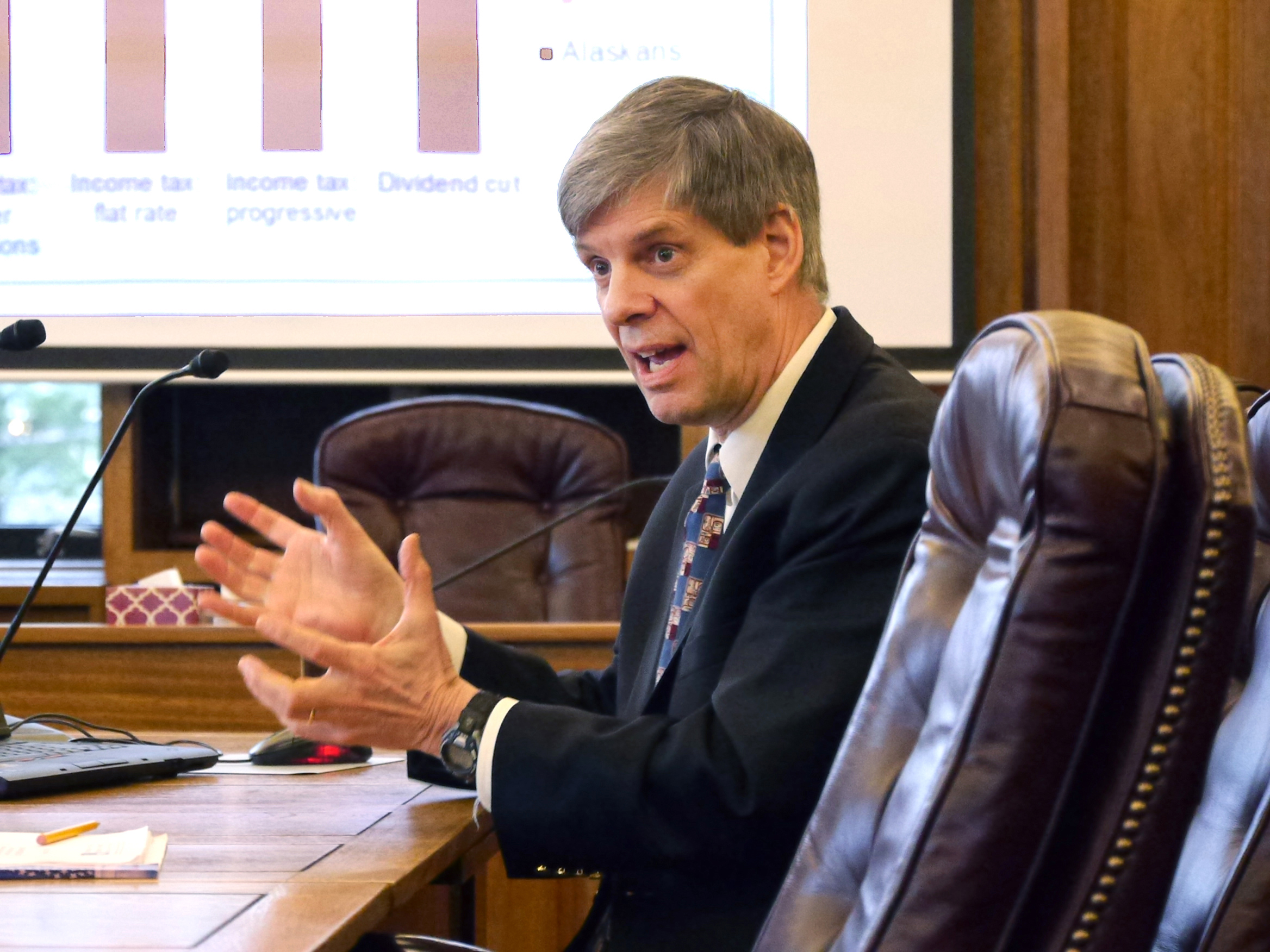What the Legislature does in response to the state government’s $4 billion deficit could have big effects on Alaska’s economy, according to a leading economist.

Gunnar Knapp, director of the University of Alaska Institute of Social and Economic Research, told the Senate Finance Committee Wednesday that uncertainty over the budget is a concern for the economy.
Knapp said closing the budget gap in one year could be too much, too fast. But it’s important for the state to have a plan, he said.
“If you can in fact reduce the uncertainty, then it makes more sense to implement … things over time,” Knapp said. “But there’s all the difference in the world between that and saying, ‘OK, we fixed 30 percent of the problem and we’ll … we’ll get back to you on what comes next.’”
Knapp said the state isn’t in recession yet, but appears to be heading into one. Job losses in the oil and gas industry, construction, and state government have been offset by gains in health care and hospitality.
“I would say that regardless of what you do, I think it’s very unlikely that the recession we will be facing would be as severe or damaging as the 1980s recession,” he said.
Knapp said that’s because the economy is bigger, more diverse and less over-extended with borrowing and construction than it was in the 1980s.
Knapp urged lawmakers to focus on major issues, like making changes to Permanent Fund earnings and new revenue:
“My own instincts are that you can’t get there without new revenues,” Knapp said.
Gov. Bill Walker has proposed a personal income tax. Legislative leaders have so far resisted the proposal.
Fairbanks Republican Sen. Pete Kelly said he doesn’t want to raise taxes until the Legislature has done more to cut the size of government.
“If we’re getting into the discussion of the things that begin to affect the flat-rate mechanic in my district, about whether he or she should pay taxes and start giving up the fruits of … their labor,” Kelly said. “That has to be done later, after we have made sure everything else about government is on the table. Then we’ll start talking about the things that are on their table.”
Kelly questioned whether Knapp’s emphasis on having a state fiscal plan to reduce uncertainty was influenced by Governor Bill Walker. In response, Knapp said he realizes lawmakers face difficult decisions, but he’s trying to stay out of the politics on either side of the issue.
Andrew Kitchenman is the state government and politics reporter for Alaska Public Media and KTOO in Juneau. Reach him at akitchenman@alaskapublic.org.




